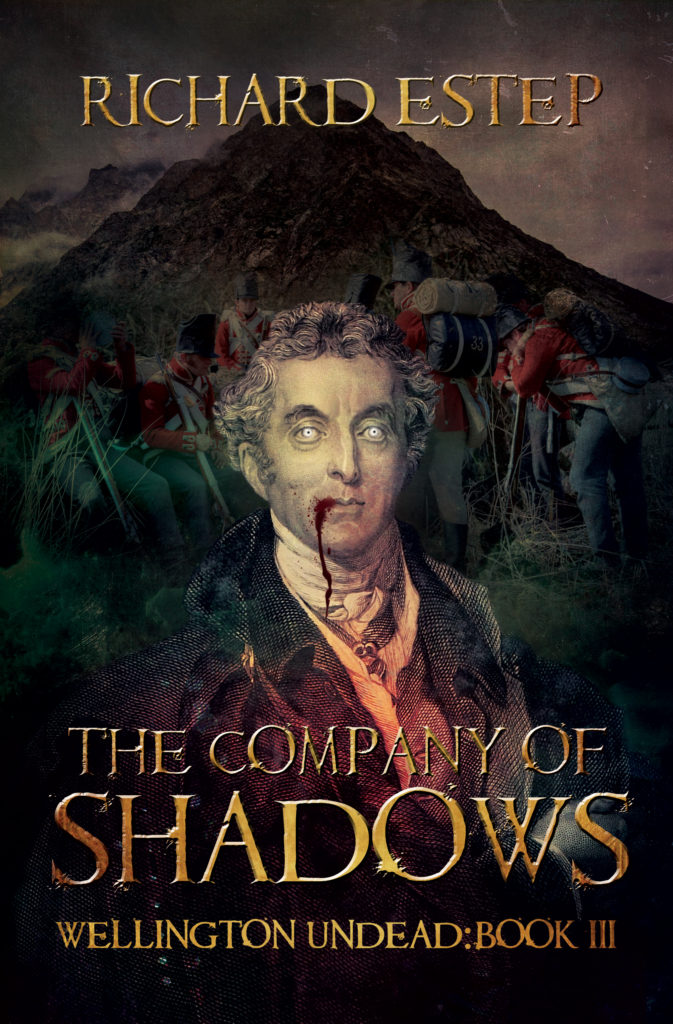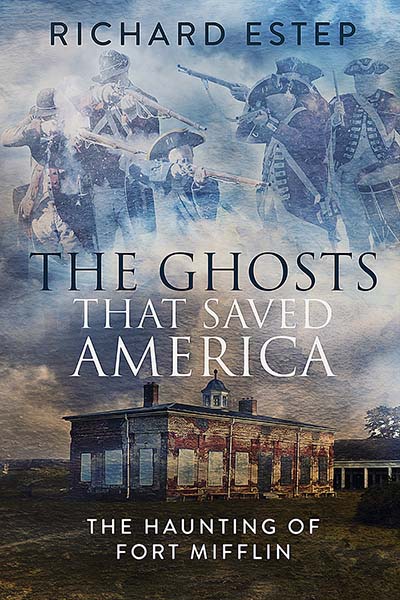The third book in the Wellington Undead saga, The Company of Shadows, is now available to buy over at Amazon. American readers can pick it up https://www.amazon.com/dp/B01G26422C#nav-subnav and UK readers can buy it here: https://www.amazon.co.uk/dp/B01G26422C
Here’s an extract from the book. I hope you enjoy it.
The common British soldier is, by and large, filth; he is the scum of the earth, rather than the salt of it, as so many members of the Great British public seem to mistakenly believe. He is little more than an animal when he begins his term of enlistment. All too many of them have been lured into taking the King’s Shilling by the wiles of unscrupulous recruiting Sergeants, whose merciless (yet utterly necessary) task is to ensure a constant supply of grist for the mill.
Some of the self-professed “social reformers,” almost all of whom tend to write their words of poison from the comfort of arm-chairs and expensively-lacquered desks within the study of their private London residences, prefer to equate the recruiting of my soldiers with the leading of lambs to the slaughterhouse. And yet, I think the analogy to be a grossly unfair one; for one cannot rightly compare the plight of the lamb, surely one of the most guileless and innocent creatures in all of creation, with that of the British redcoat. He is invariably a thief, a drunkard, and a wastrel, to name just three of his more endearing qualities. Some of the less savory occupants of our ranks are given to the entirely more heinous crimes of battery, rape and murder, and have elected (with the tacit approval of a suitably amenable magistrate) to chance their arm in the King’s service, rather than end their life dancing the hangman’s jig at the end of a sturdy rope.
Why, then, do I love them so?
Oh, make no mistake: we do not speak of love in the mortal sense of the word, that morass of base and juvenile emotions with which every young man becomes acquainted before he turns twenty years of age. As a vampire, even though I am one of relatively short standing, I am no longer capable of entertaining such trivialities. No, when I speak of love, I refer to a deep and abiding affection for those who march into the cannon’s mouth and the hail of musket balls when I give them the order. Moreover, they often do so cheerfully, or at least with the feigned good grace of those who know, deep down in their very souls, that it is all too possible that they shall never march out again.
The men of the rank and file are fundamentally different to us, we of the vampiric aristocracy whom nature has, in its infinite wisdom, seen fit to install above them as both masters and predators. Their human lifetimes are so short and fragile, particularly when compared with ours, and can be snuffed out with no more effort than it takes to extinguish a candle-flame; all that it takes is the stroke of a sword, the strike of a lead ball, or even — dare I say — the teeth of a vampire, if it should suit their purpose to cull the herd.
All too brief, with few glimmers of hope, and punctuated with fleeting instances of both joy and woe: such is the life of a redcoat.
As their commanding General, I am therefore fully cognizant of the fact that I cannot, in good conscience, throw away their lives carelessly. It must be said that not all of His Majesty’s officers take the same view. I have known some (whose names I shall not mention within the pages of this memoir) who chose instead to see the men within the ranks as nothing more than a resource to be expended as they saw fit, able to be replenished on an as-needed basis by the recruiting Sergeants and depots back in England, and therefore of no more account than the stocks of musket balls and leather boots kept by the Quartermaster.
In other words, both cannonballs and cannon fodder were of equal value.
No. Simply no. Despite their questionable morality, I have always taken great pains to establish an appropriate bond with those who I must lead into battle. This is not to say that a friendship exists between us, or anything even remotely approximating one — the very idea of such a thing would be laughable. The same is true of the relationship between the mortal officers of the East India Company and their equally mortal men: the proprieties must be maintained, no matter what. But what I will claim, is that a mutual respect exists between us, and sometimes (I flatter myself to think) also a certain degree of affection.
In some ways, this is a good and valuable thing. The men fight harder and march both further and faster for “Old Nosey” than they would for an imperious martinet, or so I have firmly convinced myself. This was put to the test at Assaye, when I asked the men to assault a well-prepared enemy who enjoyed the advantage of vastly superior numbers. The men obeyed without question, and performed magnificently, snatching victory from the looming jaws of defeat, and doing so with great bravado and total obedience.
I have never been prouder of them.
Yet there is also a darker, distinctly negative side to this particular coin. I feel the impact of their deaths personally. Each and every loss among their ranks hits me with the force of a silver blade, rammed to its hilt in my belly and twisted with malevolent purpose. There is always the feeling that I could have done something, should have done something, to prevent the loss. Perhaps that particular battalion could have approached the enemy by a more circuitous route, better shielding them from the fire of the enemy; or possibly my artillery batteries could have softened the enemy ranks more effectively if I had allowed them to engage their targets for longer. Such fallacies and fancies preoccupy my mind after every engagement, whether it be large or small, it matters not.
As their commanding General, I understand with close to perfect clarity the simple, brutal arithmetic of modern warfare: that for victory to be gained (any victory) a price must be paid in blood.
As Arthur Wellesley, former mortal man and now an undying and essentially eternal vampire, I feel the loss of each and every drop of that blood acutely…
…and it pains me beyond my power to convey.
— From the journal of Arthur Wellesley, 1803



One Response
Looking forward to this.